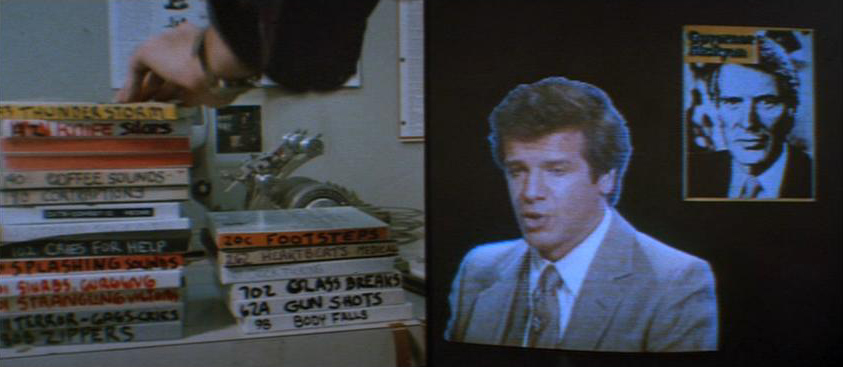PRESENTS "THE DIFFERENCE BETWEEN WHAT A COUNTRY BELIEVES ITSELF TO BE, AND WHAT IT ACTUALLY IS"

Two separate articles were posted over the weekend about Blow Out, which was released on July 24, 1981. Little White Lies' Taylor Burns wrote an essay with the headline, "Blow Out and the politics of despair"...
Travolta’s Jack Terry does everything his constitution tells him is the right thing to do, and he is punished for it, slapped back into place for having a blue collar and empty pockets. The information he has is of value to the American people and he pays for it with his life – not literally, like his partner, Sally (Nancy Allen), but with his American life, with the things he needs to know and trust to continue living as a citizen of his country. He ends the film alive but far from well. This is the politics of despair.The film’s tragic final scene is among the most sorrowful, albeit gorgeous, in all of cinema; the (fictional) Liberty Day parade provides a cruel and ironic backdrop to Terry’s crack-up, Travolta matching the tone of the story by twisting and turning through a Philadelphia seaport awash with red, white and blue. Thousands of everyday patriots have taken to the street while in the shadows a government fixer (John Lithgow) is killing a young woman, disavowing the basic principles on which America was founded. Blow Out’s genius is to present the difference between what a country believes itself to be, and what it actually is. No matter the country. No matter who’s in charge.
Throughout this climactic scene cymbals crash and fireworks bang. They hang in the sky, colourful bursts of unadulterated patriotism for the revellers below to gawp in awe at. These people have been sold the belief that if they work hard for their country, if they defend its constitution and serve its enforcers, they will be rewarded – in this case with a showy parade that literally reminds them of the “Liberty” they are supposed to be so grateful for. What they don’t see is the firework coming down as a damp squib; its light a mere distraction from what’s going on in the dark.
And then at Audiences Everywhere, Whit Denton posted more of a ramble about the truth buried within the film. "With Blow Out," states Denton, "De Palma is telling a gripping, obsessive thriller that reckons with the id of American consciousness. Yet, he is also making a statement about the creation of art itself, about that unending and often infuriating search for truth. De Palma is trying to blow everything up and analyze every frame and sound bite, because perhaps hidden in the white noise and pixels there is some modicum of real and honest meaning lying dormant."
Updated: Monday, July 25, 2016 12:39 AM CDT
Post Comment | Permalink | Share This Post



